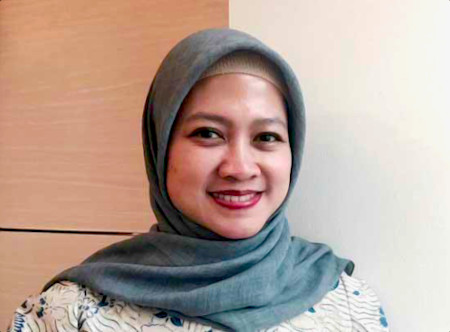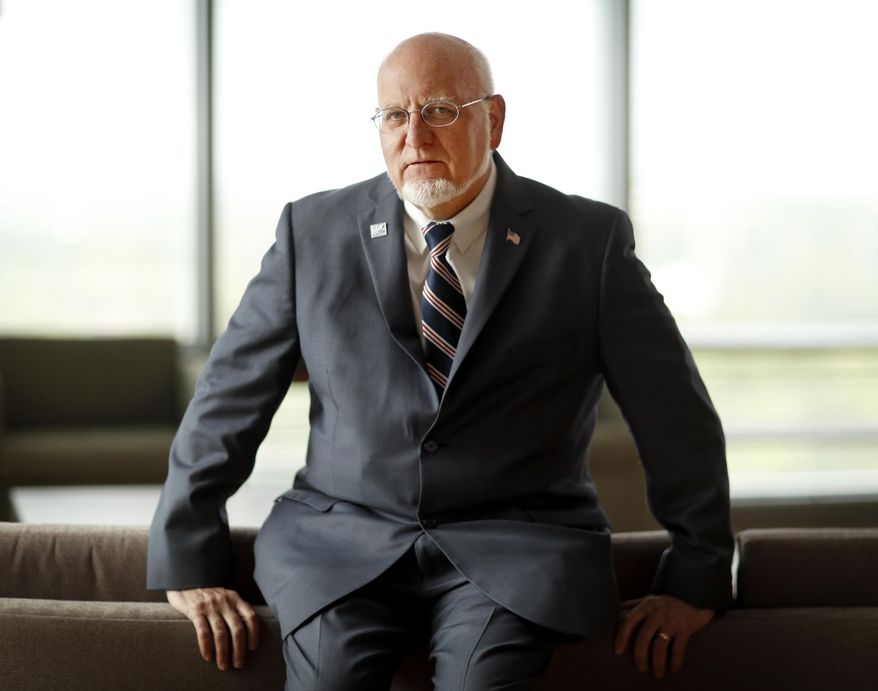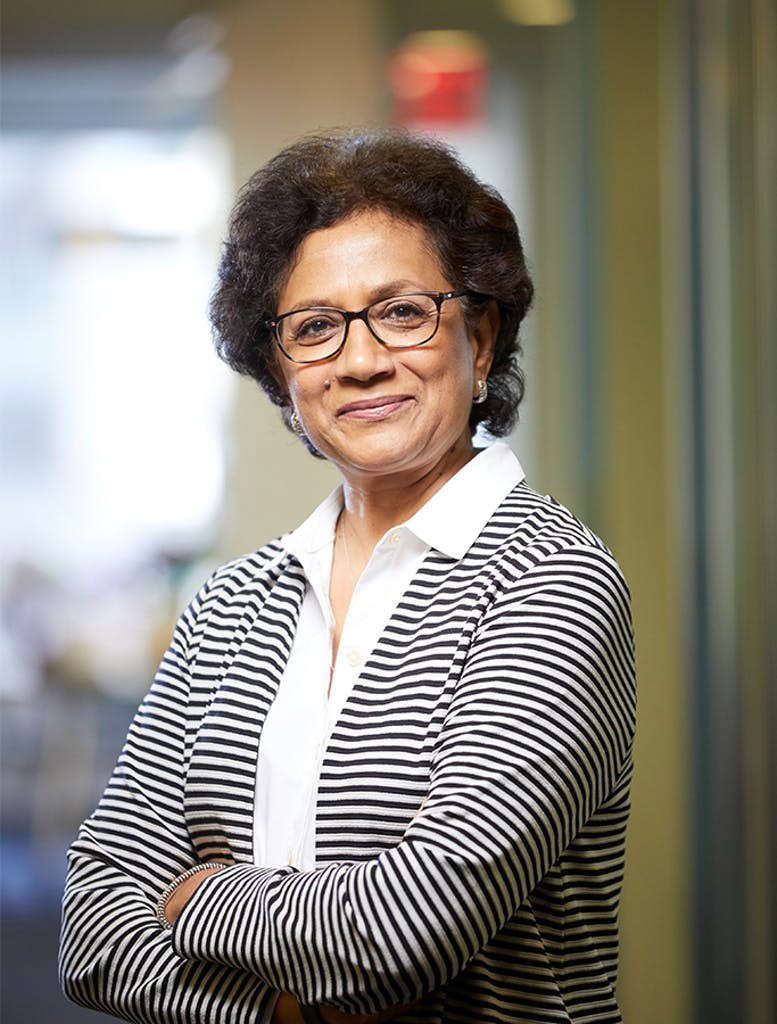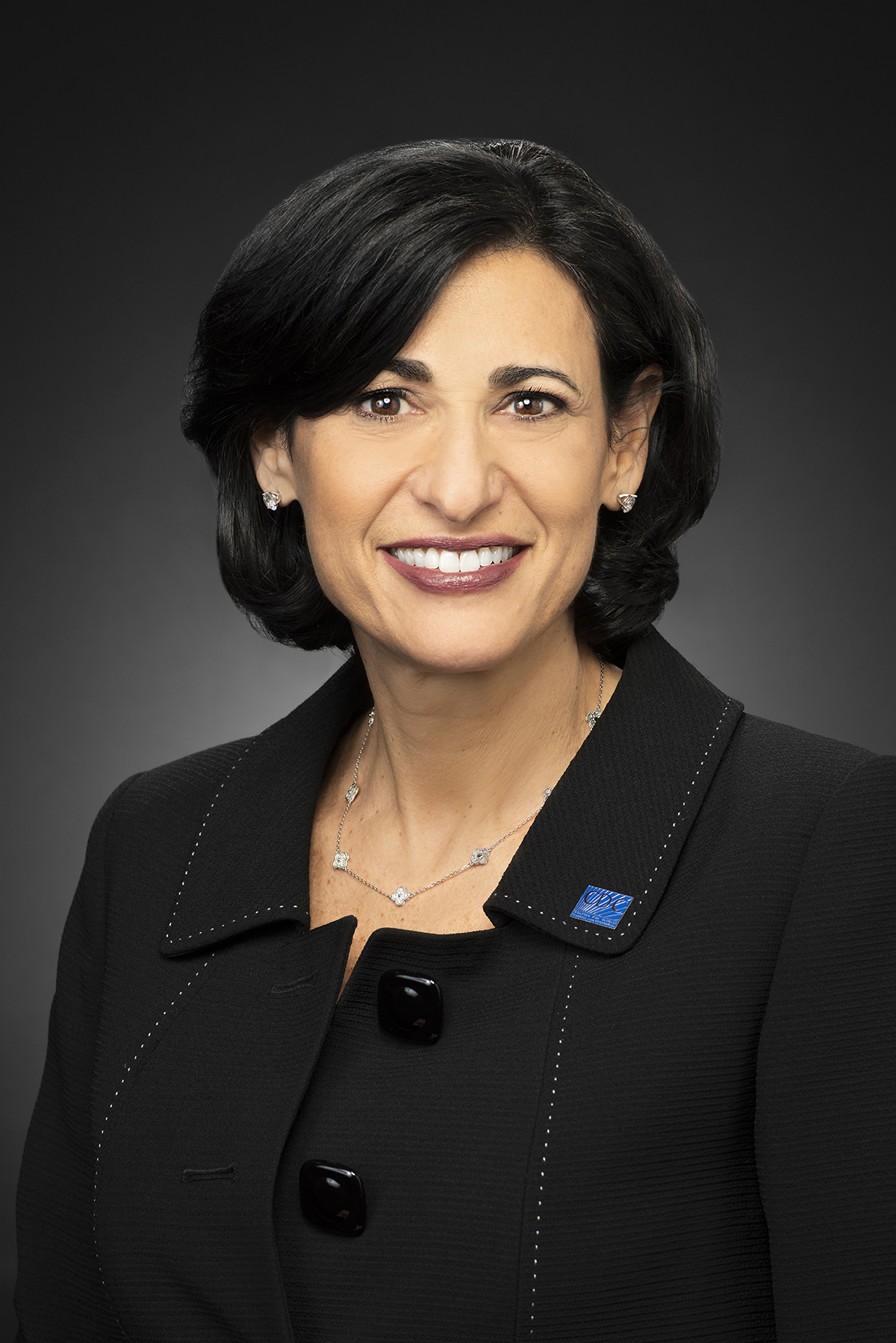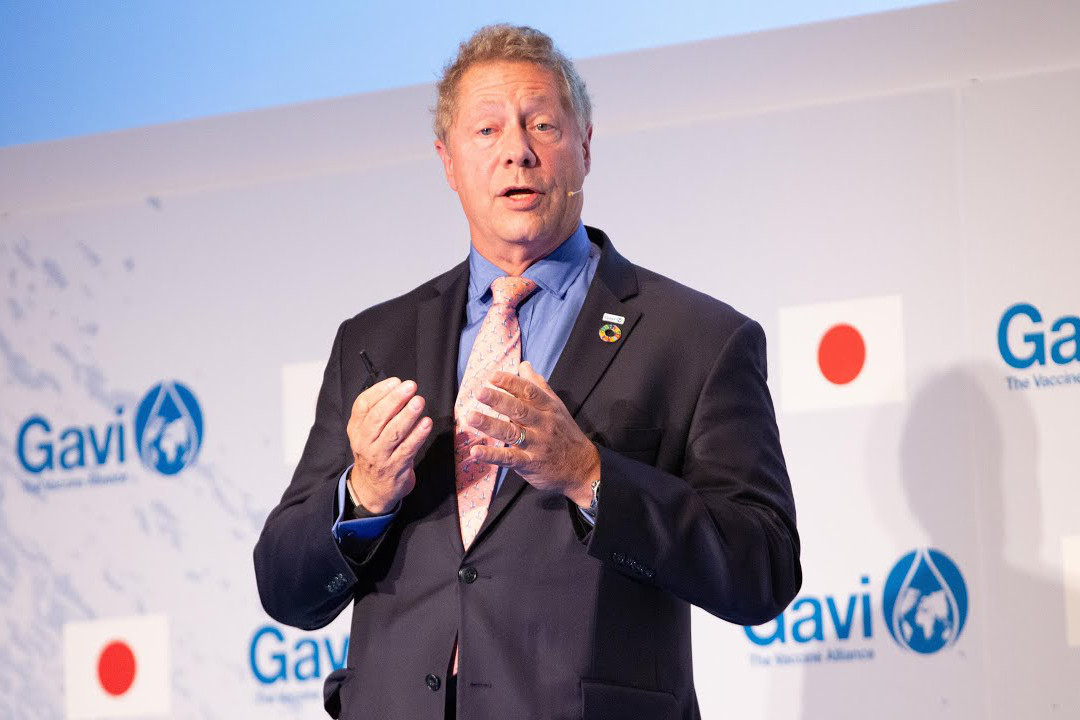Former Gender Champions
The Gender Champion for Polio Eradication Initiative was launched in March 2020 to contribute to gender mainstreaming efforts in the Polio Eradication Initiative. Gender Champions commit to the GPEI Gender Equality Strategy and support its full implementation through two annual concrete commitments. Being a Gender Champion provides opportunities to engage with Member States (politically, financially and technically) to amplify their contribution to polio eradication and concurrently support mutual objectives around gender mainstreaming. Being a Gender Champion for Polio Eradication is connected to the Champion’s role at the moment of his/her commitment.
The Global Polio Eradication Initiative is grateful to these former Gender Champions for their invaluable contribution to highlight the pivotal role of gender in polio eradication.
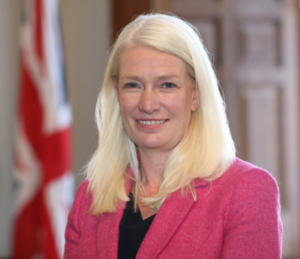
“The UK is proud to be at the forefront of the fight against polio helping children around the world live happier, healthier lives free from the debilitating disease. As the global health community rallies together to reach the final stage of polio eradication, we recognize the important role of gender in delivering health services including vaccination. Gender related barriers to immunization must be tackled if we want to lead the final push to make polio history. The Global Polio Eradication Initiative is doing groundbreaking work to apply a gender lens in its programming at all levels and I am proud to support a polio-free world.
I support the GPEI Gender Equality Strategy 2019-2023 as a concrete effort to highlight the role of gender in polio eradication.
I commit to:
- Use social media to highlight the role of women at the forefront of polio eradication and to raise awareness on the need to increase women’s representation in leadership roles
- Take part in at least one annual high-level event or discussion on gender and immunization in the UK or abroad to raise awareness on the importance to address gender-related barriers to immunization including in polio eradication
Amanda Milling, UK Minister for Asia and the Middle East
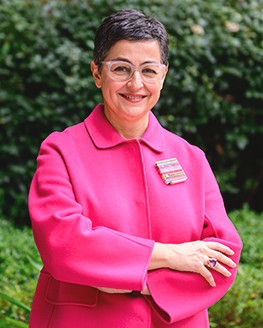 “The road to gender equality is a long and winding one, but we can design faster and more effective ways to travel it together. If we are to achieve Global Goals for development and eliminate extreme poverty we must tackle inequalities, especially those affecting women. Gender equality is vital to achieving more effective and sustainable results in polio eradication.”
“The road to gender equality is a long and winding one, but we can design faster and more effective ways to travel it together. If we are to achieve Global Goals for development and eliminate extreme poverty we must tackle inequalities, especially those affecting women. Gender equality is vital to achieving more effective and sustainable results in polio eradication.”
I support the GPEI Gender Equality Strategy 2019-2023 as a concrete effort to highlight the role of gender in polio eradication.
I commit to:
• Participate in at least two gender equality events every year until 2023 in Spain and/or abroad, raising awareness of gender barriers in health delivery, including immunization and polio programs
• Actively promote and give visibility to the GPEI Gender Equality Strategy through social media
Arancha González Laya, Former Minister for Foreign Affairs, European Union and Cooperation of Spain
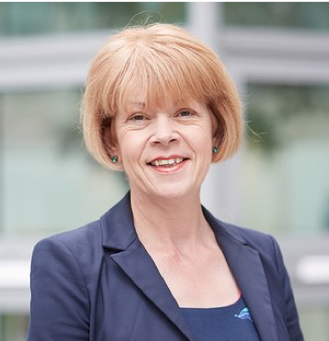
“The UK envisions a world safe and secure from global health threats posed by infectious diseases, but until every strain of polio is eradicated worldwide, no child is safe. The UK is at the forefront to support countries to deliver routine immunization and reach underserved zero-dose children. I am proud of the role UK aid plays, supporting over 450 million polio vaccinations a year.
Women are absolutely critical to the success of the polio programme; polio eradication will not be achieved unless we redouble our efforts to ensure women’s participation is maximized and that the polio programme connects with women in polio-affected communities. Beyond polio, this has the potential to provide women with greater social and economic opportunities. We need actions not just words, and I pledge to use my role to ensure that together we tackle gender-related barriers. Investing in disaggregating and analysing data by gender will be key, as will be ensuring close attention is paid to the protection and empowerment of frontline polio workers.”
I support the GPEI Gender Equality Strategy as a concrete effort to highlight the role of gender in polio eradication.
I commit to:
- Use social media channels to raise awareness of the role of women in the fight against polio
- Hold an annual FCDO event to celebrate women in the frontline of tackling polio.
Wendy Morton, Former Minister of European Neighbourhood and the Americas, Foreign, Commonwealth & Development Office (FCDO), UK
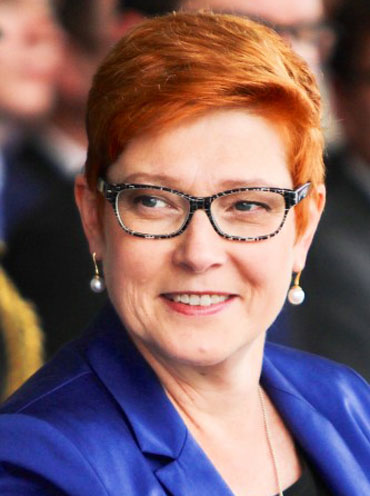
“The Australian Government is proud to announce its continued commitment to achieve a world free of polio. In doing so, we recognize the crucial role that women play at all levels in eradicating polio. We all must commit to working toward a world where women and children are free from discrimination, and the GPEI’s Gender Equality Strategy is a concrete step to reach gender equality and women’s empowerment.”
I support the GPEI Gender Strategy as a concrete effort to highlight the role of gender in polio eradication.
I commit to:
• Advocate for women’s full and meaningful participation and leadership at all levels of the polio programme.
• Recognise the vital role of women as front line workers in the fight against polio in my engagement with partner governments and highlight the support they need to carry out their vital work safely and effectively.
Senator Hon Marise Payne, Australian Minister for Foreign Affairs and Minister for Women
Other Former Champions

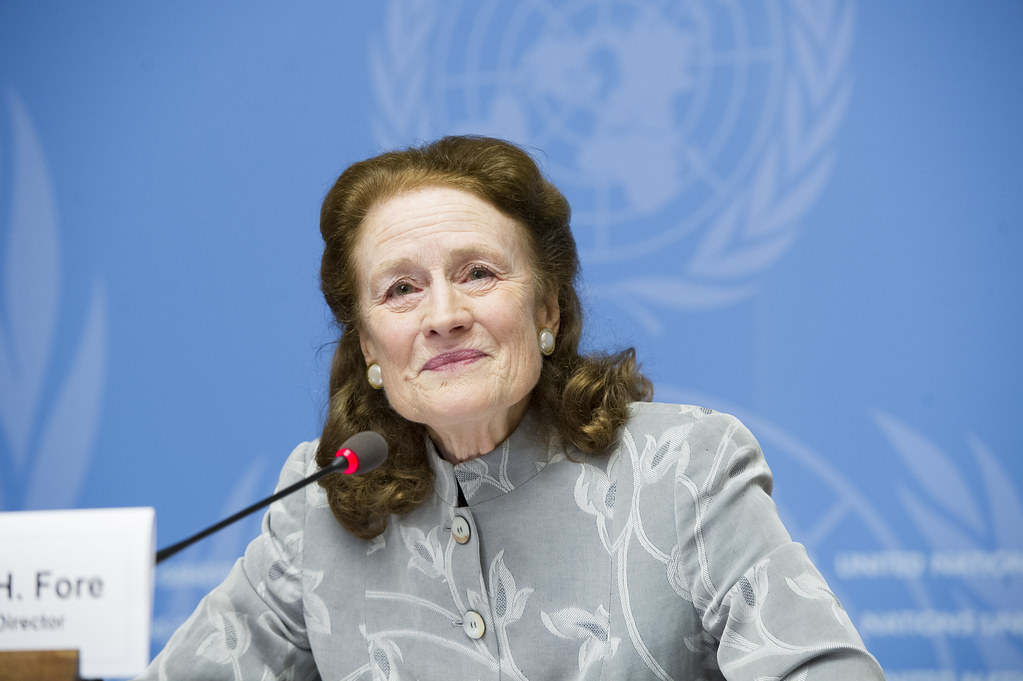
Henrietta H. Fore, Executive Director UNICEF“We are closer than ever to ending polio. But pervasive challenges, included gender-related barriers, make this stage the most difficult yet. UNICEF is committed to overcoming every gender-related barrier that keeps children from the vaccinations they deserve. This is not only a matter of rights – but an important way to honour the courage and commitment of the army of polio workers and volunteers, mostly women, who are bravely working in the most under-served communities to educate families about polio, encourage vaccination, and delivering this lifesaving intervention to every child.”
I support the GPEI Gender Equality Strategy as a concrete effort to highlight the role of gender in polio eradication by committing to:
• Engage with GPEI target countries for more gender-responsive programming
• Ensure that a commitment to gender equality is reflected across the performance evaluation systems of all of UNICEF’s senior managers involved in the polio eradication effort.
Diah Satyani SAMINARSIH, WHO Director-General Senior Adviser on Gender and Youth“Thanks to the dedication and commitment of one of the world’s largest health workforces, the goal of a world free from polio is close. Women are among the primary actors on the ground in the global effort and their contribution is vital to reach the last mile in polio eradication. WHO is strongly committed to support the polio program’s efforts to mainstream gender into immunization through the GPEI Gender Equality Strategy.”
I support the GPEI Gender Equality Strategy as a concrete effort to highlight the role of gender in polio eradication by committing to:
• Raise awareness on the role of women engaged in polio eradication in the international fora through events and panel discussions, showcasing positive learnings and best practices of addressing gender-related barriers to immunization.
• Advocate for the introduction of a mandatory training on gender for all WHO staff by the end of 2020.
Robert R. Redfield, MD, Director of the U.S. Centers for Disease Control and Prevention “Increasing women’s participation at all levels of the polio program is critical and ultimately will provide more children with access to vaccines. CDC fully supports the GPEI Gender Equality Strategy and its commitment to increasing women’s meaningful and essential participation in this initiative. We must stay the course to complete the mission of achieving a polio-free world.”
I support the GPEI Gender Equality Strategy as a concrete effort to highlight the role of gender in polio eradication by committing to:
• Support adequate sex-disaggregated data collection throughout the GPEI to inform how we address disparities
• Ensure gender balance and diversity of speakers and thematic experts in polio-related events, workshops and panels
@United Nations Foundation
Dr. Geeta Rao Gupta, Executive Director of the 3D Program for Girls and Women and Senior Fellow, United Nations Foundation“The polio eradication program has depended heavily upon women as vaccinators, educators, social mobilizers, subject-matter experts and decision-makers. The gains made in many countries in stopping the spread of polio are primarily because of the courage and commitment of these women. Applying a gender lens to all aspects of programming is vital to supporting women and communities and to achieving a polio-free world.”
I support the GPEI Gender Equality Strategy as a concrete effort to highlight the role of gender in polio eradication by committing to:
• Take part in a GPEI milestone event to raise awareness of gender barriers in health service delivery, including immunization and polio programs
• Give visibility to the role of women in polio eradication and the importance of the gender responsive programming through social media
Rochelle P. Walensky, MD, MPH Director, CDC, and Administrator, ATSDR“Our ability to eradicate polio depends on our commitment to removing obstacles to women’s involvement in and ownership of eradication efforts. Women are at the forefront of the global struggle against polio – whether as caregivers, vaccinators, vaccine advocates and trusted leaders among affected populations, or as scientists, public health professionals and managers in the GPEI. CDC supports the GPEI Gender Equality Strategy and is committed to removing gender-related barriers to polio eradication and improving health outcomes for women and children worldwide.”
I support the GPEI Gender Equality Strategy as a concrete effort to highlight the role of gender in polio eradication by committing to:
• Promote the integration of gender-responsive programming, operations, and decision-making within the GPEI
• Increase women’s meaningful participation and agency throughout the partnership, including at the management level

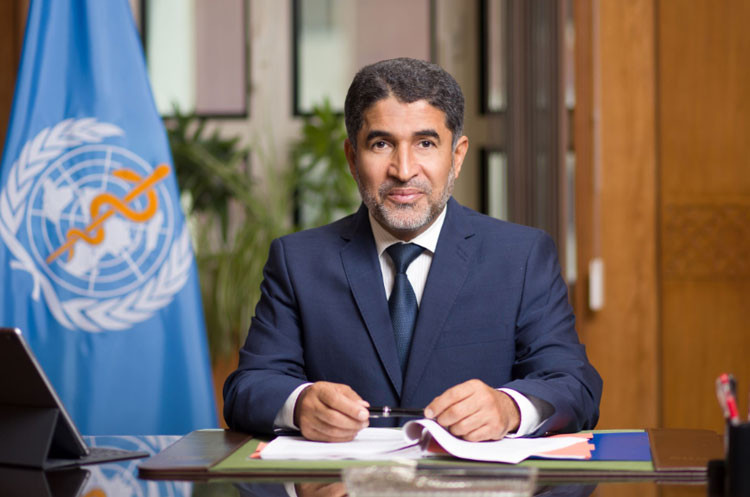
Dr Ahmed Al-Mandhari, WHO Regional Director for the Eastern Mediterranean“The progress the polio programme has witnessed in the past years would not have been possible without the hard work and commitment of courageous women who are dedicated to protecting children and making polio history. Women are among the primary actors on the ground and they are able to overcome many visible and invisible barriers that hamper children from being vaccinated. We must always remember that our noble health causes and the Sustainable Development Goals cannot be achieved without the full involvement, representation and engagement of women at all levels of society.”
I support the GPEI Gender Equality Strategy as a concrete effort to highlight the role of gender in polio eradication by committing to:
• Strengthen the collection and analysis of sex-disaggregated data and its integration into polio and immunization strategies and programming in the EMRO Region
• Raise gender within the Regional Sub-Committee on Polio
Seth Berkley, Chief Executive Officer GAVI Alliance“In our joint efforts to eradicate polio and ensure we sustainably extend routine immunisation coverage for all children, we cannot ignore the gender related barriers to immunisation faced by caregivers and health workers. Gavi is committed to understanding these gender related barriers and tailoring inclusive service provision and demand promotion to the needs faced by different population groups.“
I support the GPEI Gender Equality Strategy as a concrete effort to highlight the role of gender in polio eradication by committing to:
• Encourage programming of the Gavi country portfolio of support to mitigate, address, and overcome gender-related barriers to immunisation
• Include gender issues in official speeches, as well as briefings and presentations to staff, and regularly circulate materials related to gender and immunisation, including polio, with all staff, at all levels

 “The road to gender equality is a long and winding one, but we can design faster and more effective ways to travel it together. If we are to achieve Global Goals for development and eliminate extreme poverty we must tackle inequalities, especially those affecting women. Gender equality is vital to achieving more effective and sustainable results in polio eradication.”
“The road to gender equality is a long and winding one, but we can design faster and more effective ways to travel it together. If we are to achieve Global Goals for development and eliminate extreme poverty we must tackle inequalities, especially those affecting women. Gender equality is vital to achieving more effective and sustainable results in polio eradication.”




